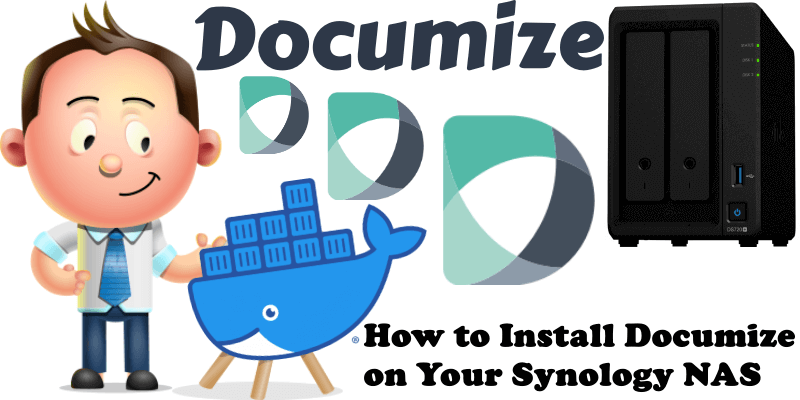
Documize Community is an open source, self-hosted, modern, lightweight alternative to Confluence and other similar solutions. Built for technical and non-technical users, Documize is designed to unify both customer-facing and internal documentation. Organization is made through labels, spaces and categories. Documize is built with Golang + EmberJS and compiled down to a single executable binary that is available for Linux, Windows and Mac. In this step by step guide I will show you how to install Documize on your Synology NAS using Docker & Portainer.
This guide works perfectly with the latest Documize v5.13.0 release.
STEP 1
Please Support My work by Making a Donation.
STEP 2
Install Portainer using my step by step guide. If you already have Portainer installed on your Synology NAS, skip this STEP. Attention: Make sure you have installed the latest Portainer version.
STEP 3
Go to File Station and open the docker folder. Inside the docker folder, create one new folder and name it documizedb. Follow the instructions in the image below.
Note: Be careful to enter only lowercase, not uppercase letters.
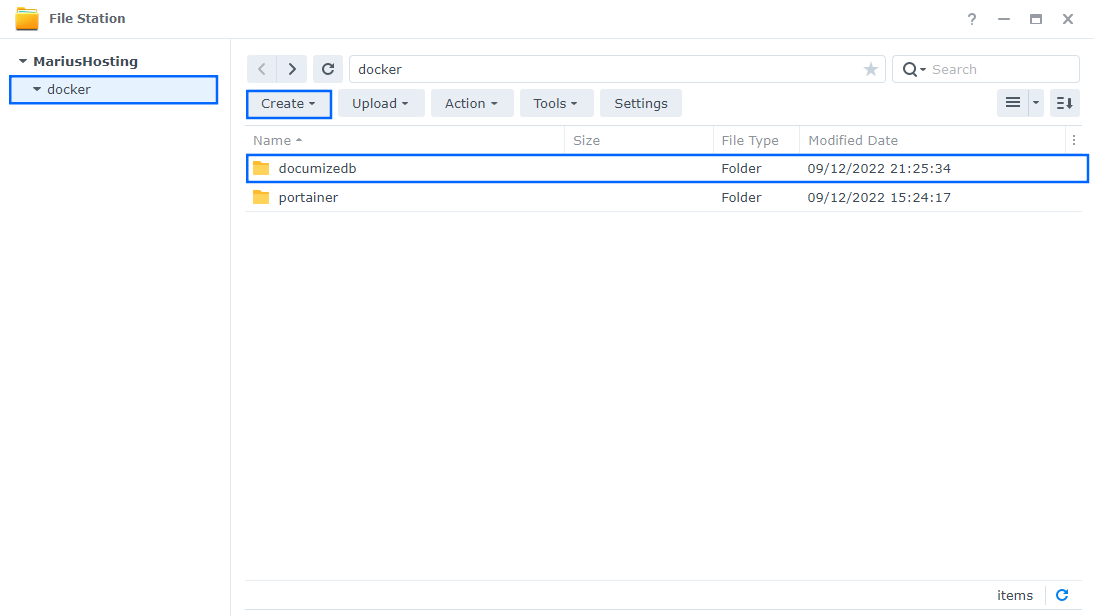
STEP 4
Get your Activation Key! Launch your browser, then go to the official Documize website by clicking on the blue link below.
Add your own company name and your own email. Hit the purple Get Activation Key button. You will get your personalized key via email. You will need this Key later at STEP 10. Follow the instructions in the image below.
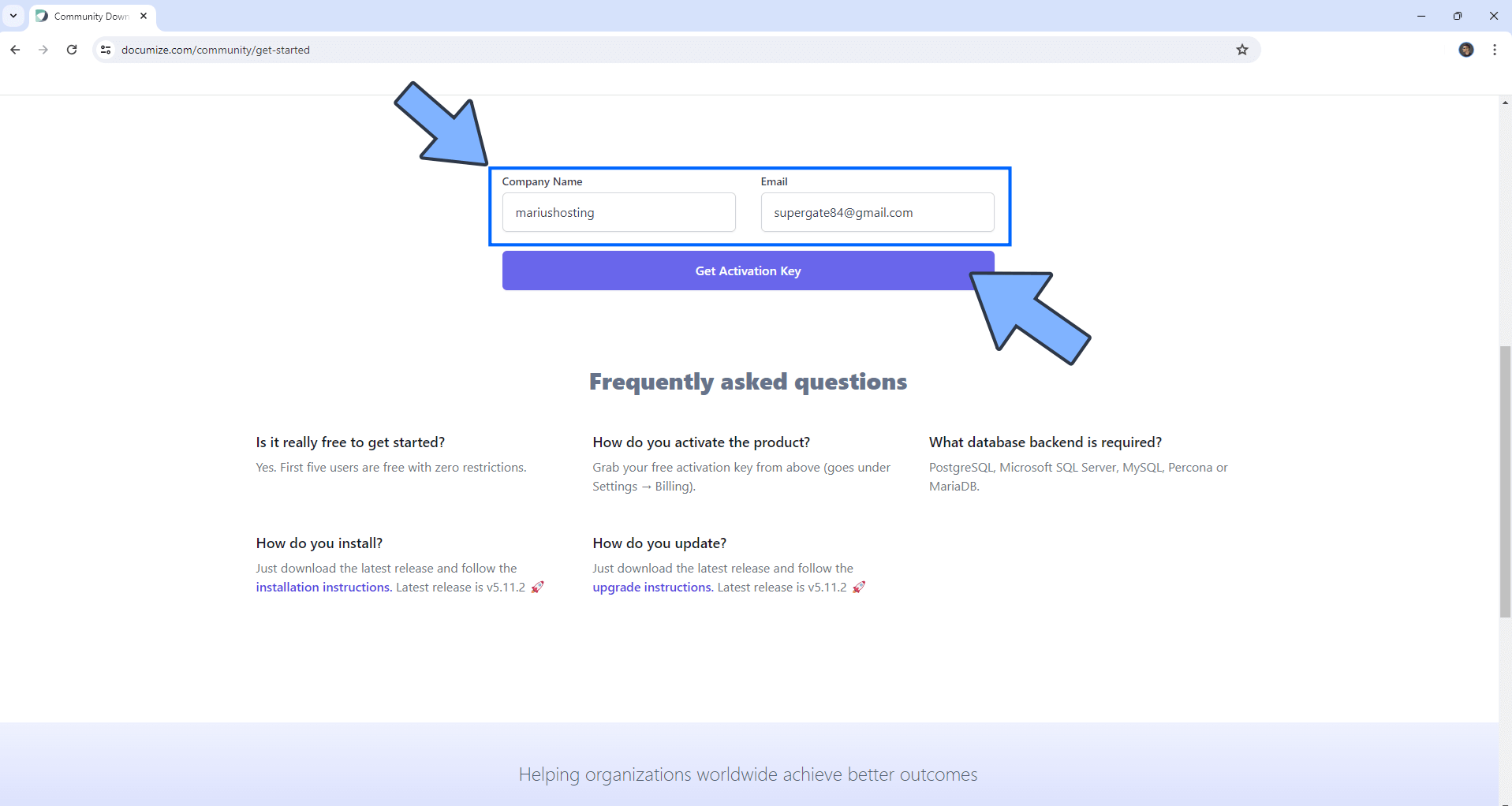
STEP 5
Log into Portainer using your username and password. On the left sidebar in Portainer, click on Home then Live connect. Follow the instructions in the image below.

On the left sidebar in Portainer, click on Stacks then + Add stack. Follow the instructions in the image below.

STEP 6
In the Name field type in documize. Follow the instructions in the image below.
version: "3.9"
services:
db:
image: postgres:16
container_name: Documize-DB
restart: on-failure:5
hostname: documize-db
mem_limit: 1g
cpu_shares: 1024
security_opt:
- no-new-privileges:true
healthcheck:
test: ["CMD", "pg_isready", "-q", "-d", "documize", "-U", "documizeuser"]
ports:
- 5444:5432
environment:
POSTGRES_USER: documizeuser
POSTGRES_PASSWORD: documizepass
POSTGRES_DB: documize
volumes:
- /volume1/docker/documizedb:/var/lib/postgresql/data:rw
app:
image: debian:latest
container_name: Documize
restart: on-failure:5
command: /bin/sh -c "apt-get -qq update && apt-get -qq install -y wget && wget https://community-downloads.s3.us-east-2.amazonaws.com/documize-community-plus-linux-amd64 && chmod 777 ./documize-community-plus-linux-amd64 && ./documize-community-plus-linux-amd64"
depends_on:
- db
ports:
- 5003:5003
environment:
DOCUMIZEPORT: 5003
DOCUMIZEDB: host=db port=5432 dbname=documize user=documizeuser password=documizepass sslmode=disable
DOCUMIZEDBTYPE: postgresql
DOCUMIZESALT: documize
DOCUMIZELOCATION: selfhost
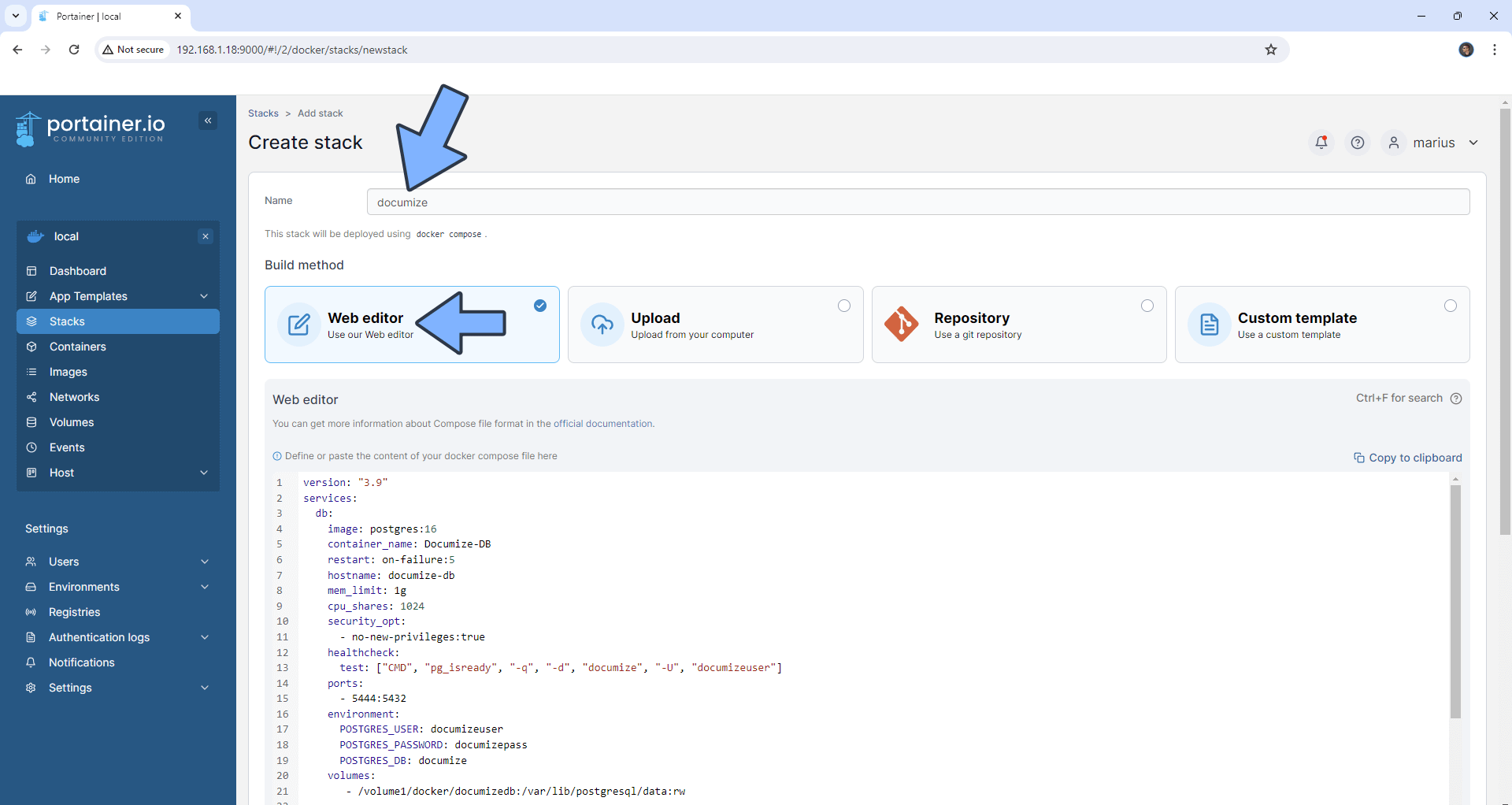
STEP 7
Scroll down on the page until you see a button named Deploy the stack. Click on it. Follow the instructions in the image below. The installation process can take up to a few minutes. It will depend on your Internet speed connection.
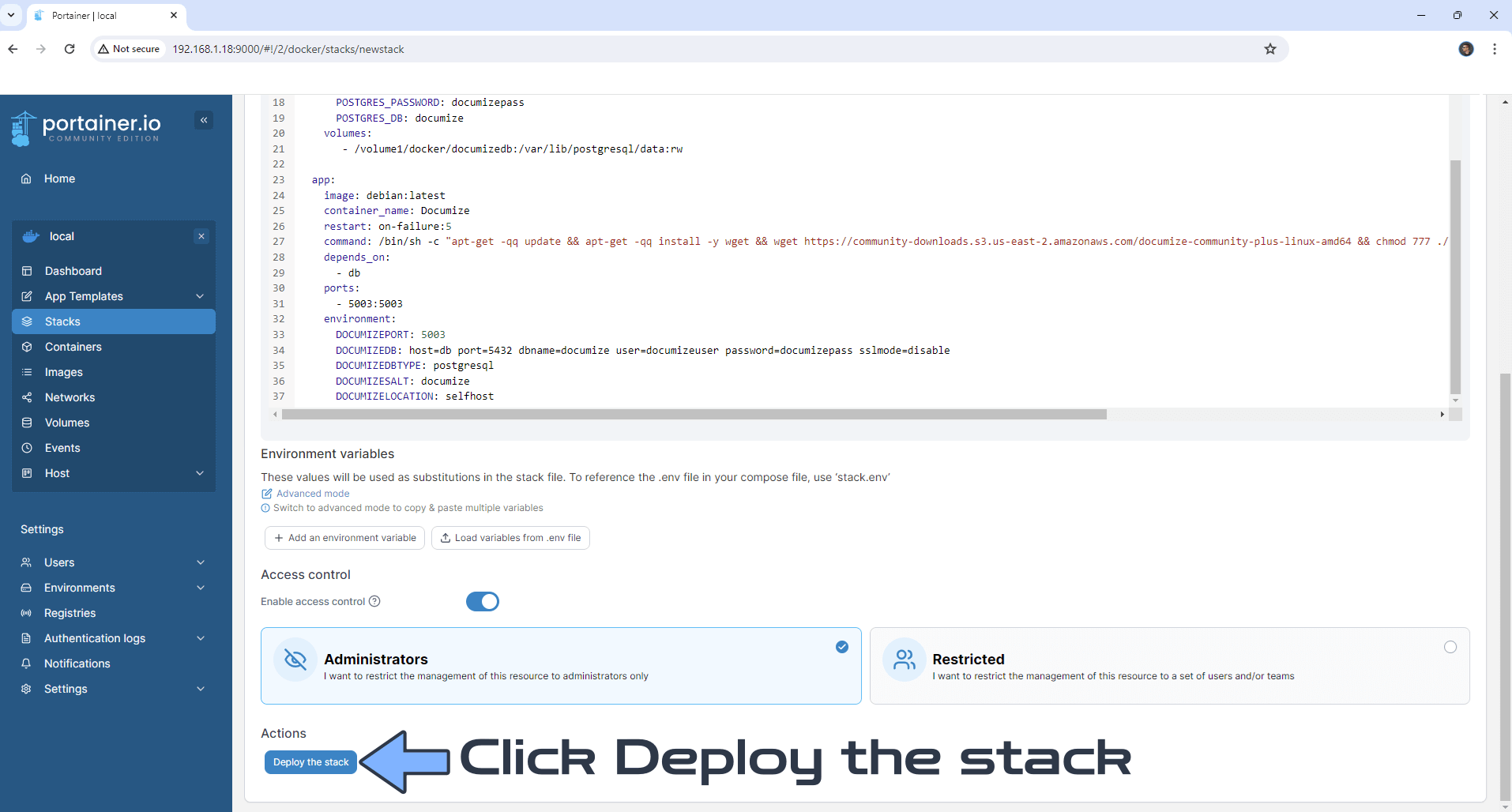
STEP 8
If everything goes right, you will see the following message at the top right of your screen: “Success Stack successfully deployed“.

STEP 9
🟢Please Support My work by Making a Donation. Almost 99,9% of the people that install something using my guides forget to support my work, or just ignore STEP 1. I’ve been very honest about this aspect of my work since the beginning: I don’t run any ADS, I don’t require subscriptions, paid or otherwise, I don’t collect IPs, emails, and I don’t have any referral links from Amazon or other merchants. I also don’t have any POP-UPs or COOKIES. I have repeatedly been told over the years how much I have contributed to the community. It’s something I love doing and have been honest about my passion since the beginning. But I also Need The Community to Support me Back to be able to continue doing this work.
STEP 10
Please wait approximately 3 minutes for the installation to be completed or you will get a blank page if you try to connect too soon. It will depend on your Internet speed connection. Now open your browser and type in http://Synology-ip-address:5003 Add your own Credentials then paste the Activation key you previously got via email at STEP 4. Click COMPLETE SETUP. Follow the instructions in the image below.
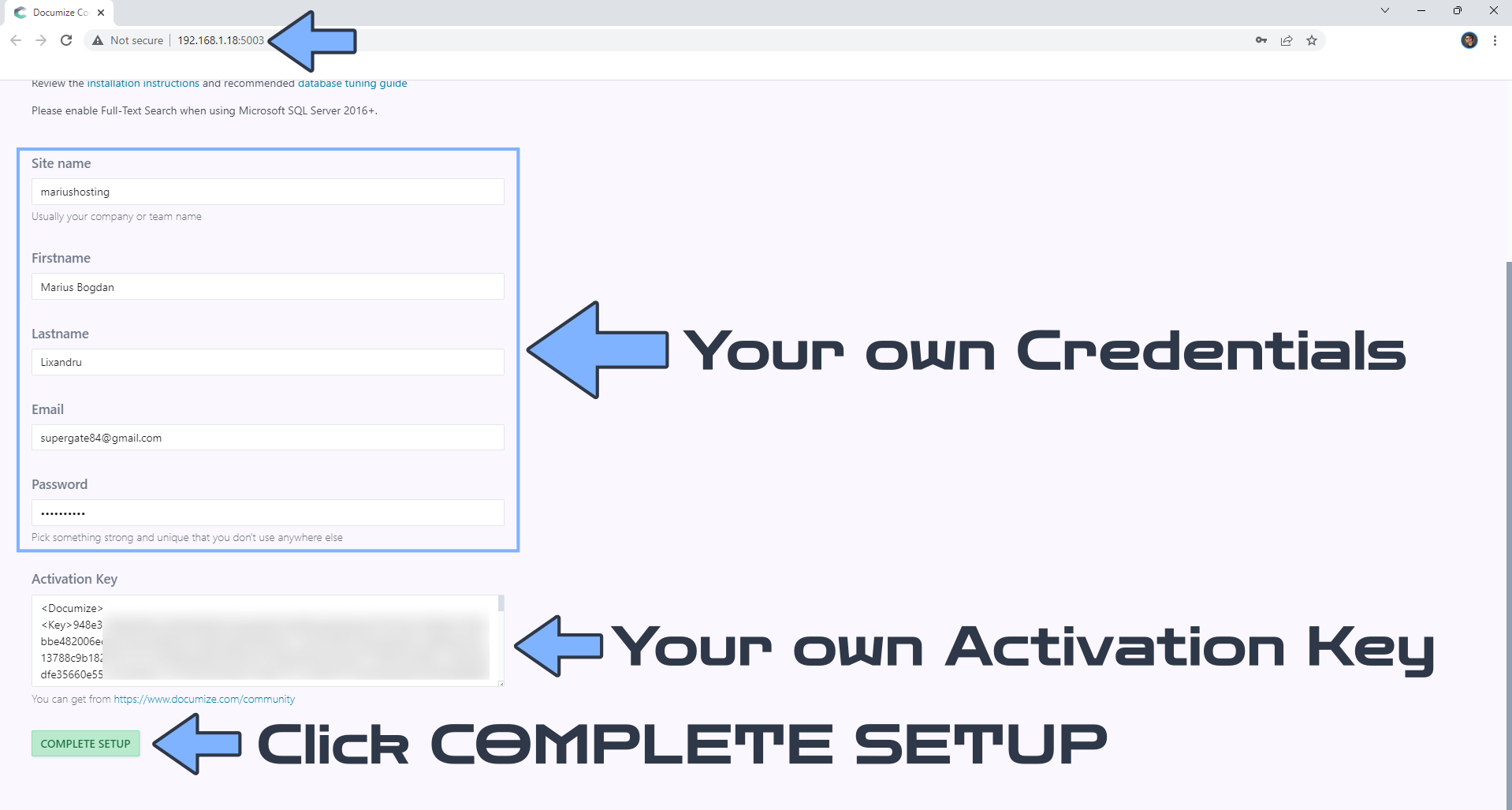
STEP 11
Enjoy your Documize! At the top right of the page click on the gear icon to access the settings page. Follow the instructions in the image below.
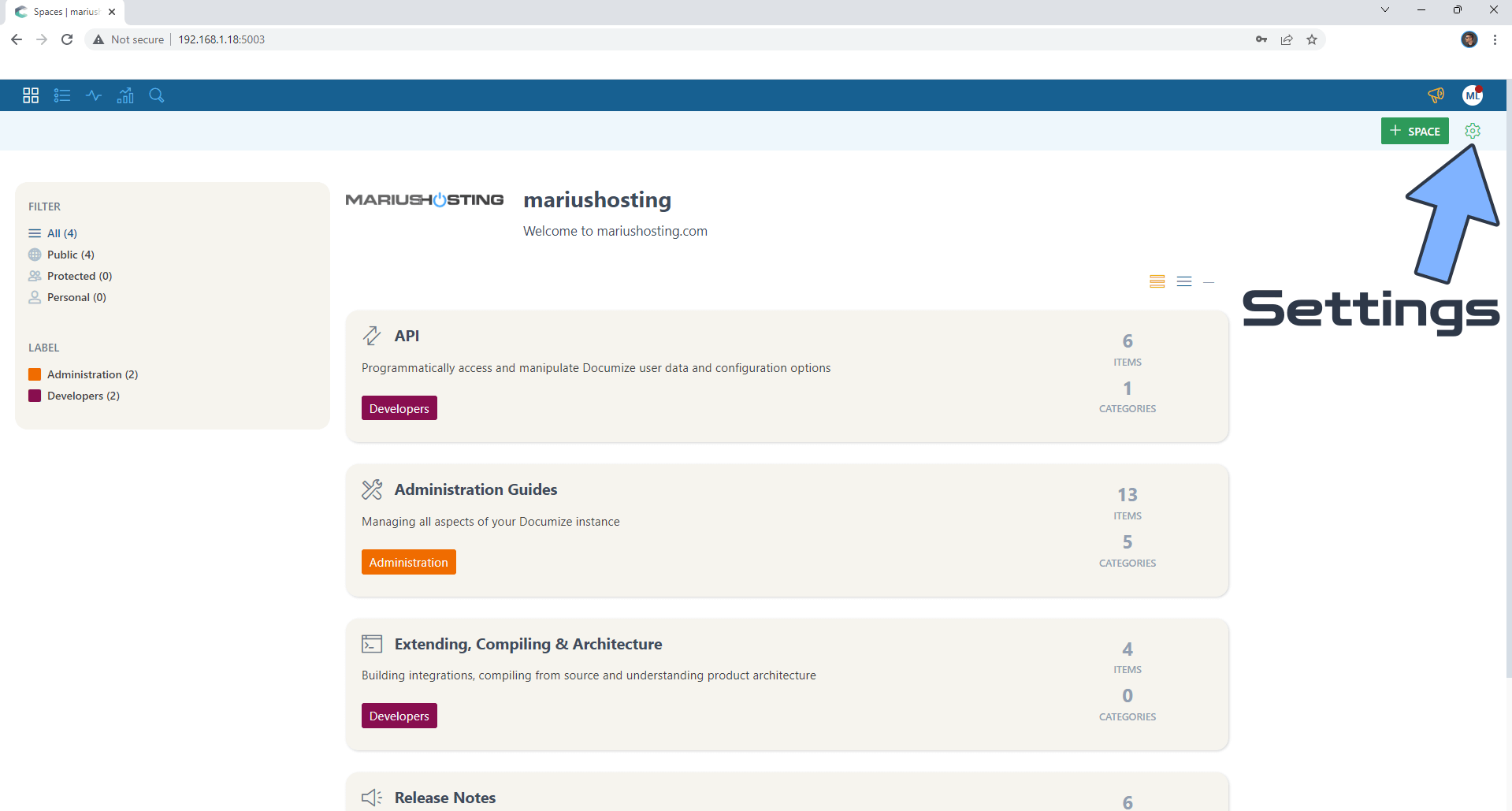
STEP 12
Customize your Documize with your favorite color, your own company logo etc. Follow the instructions in the image below.
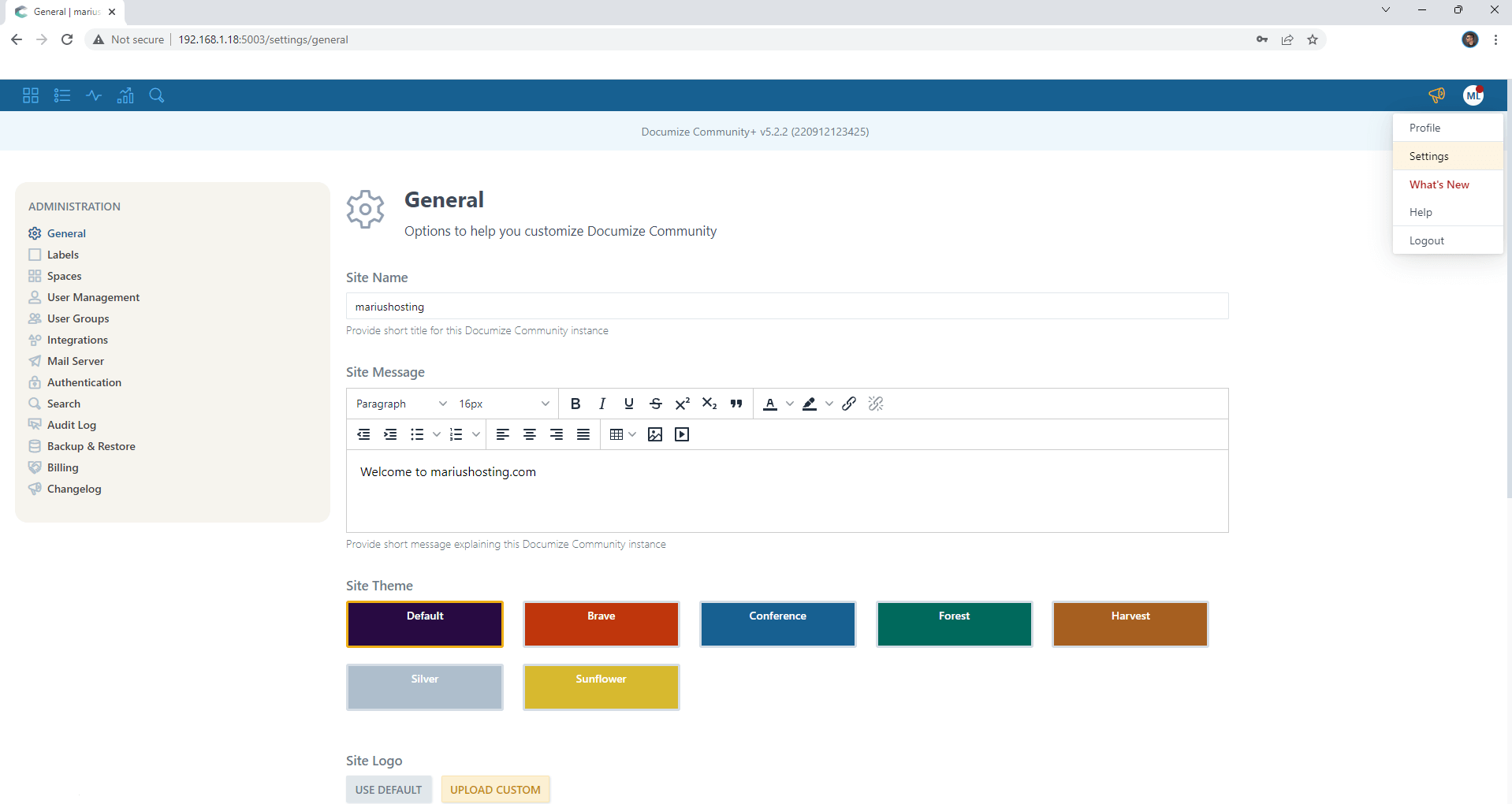
STEP 13
If you want to run the Documize container over HTTPS, check my guide on How to Run Docker Containers Over HTTPS. You will also need to add websocket in order to make Documize work via HTTPS.
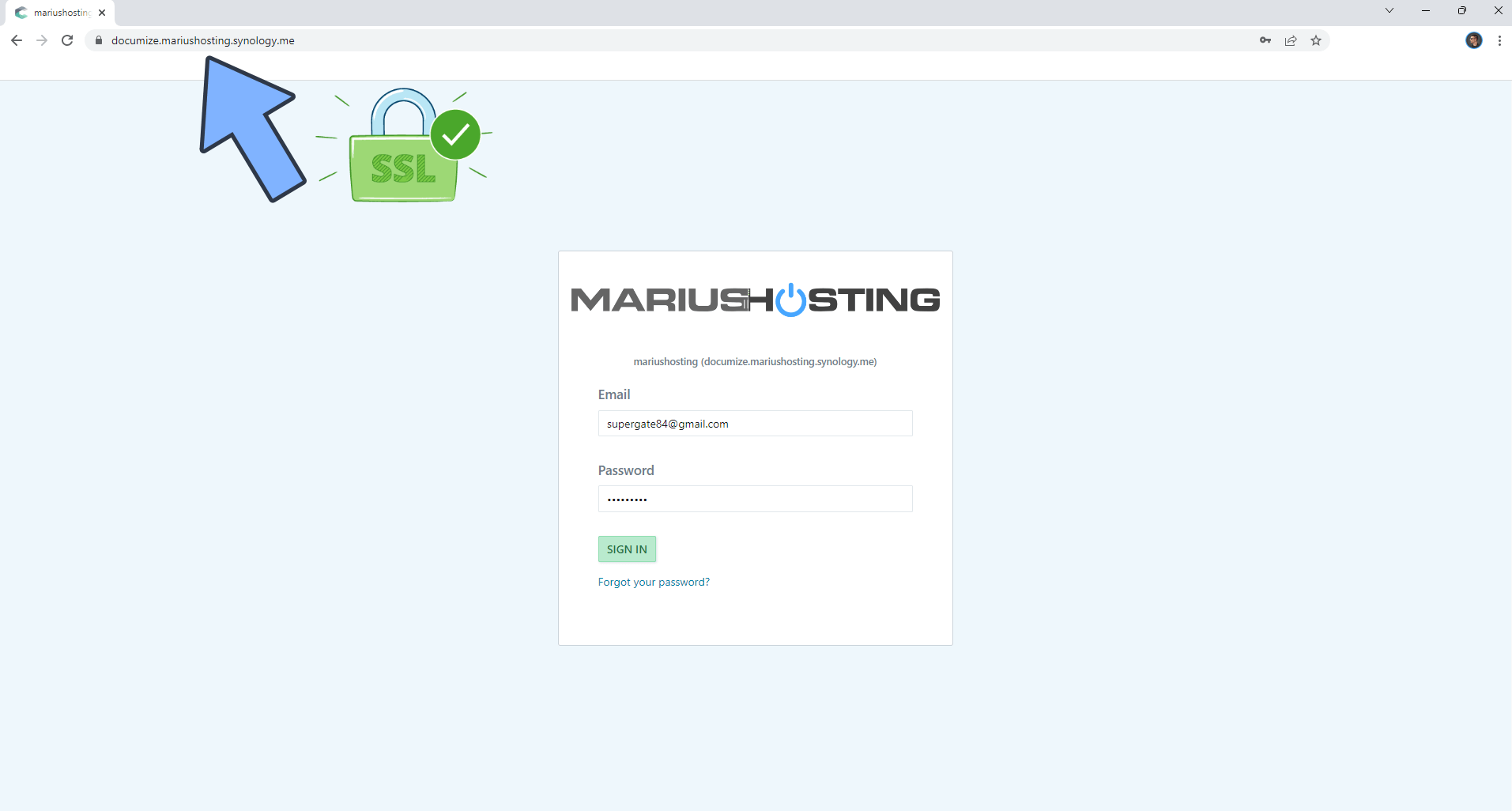
Enjoy Documize!
If you encounter issues by using this container, make sure to check out the Common Docker issues article.
Note: Find out how to update the Documize container with the latest image.
Note: Can I run Docker on my Synology NAS? See the supported models.
Note: How to Back Up Docker Containers on your Synology NAS.
Note: How to Free Disk Space on Your NAS if You Run Docker.
Note: How to Schedule Start & Stop For Docker Containers.
Note: How to Activate Email Notifications.
Note: How to Add Access Control Profile on Your NAS.
Note: How to Change Docker Containers Restart Policy.
Note: How to Use Docker Containers With VPN.
Note: Convert Docker Run Into Docker Compose.
Note: How to Clean Docker.
Note: How to Clean Docker Automatically.
Note: Best Practices When Using Docker and DDNS.
Note: Some Docker Containers Need WebSocket.
Note: Find out the Best NAS Models For Docker.
Note: Activate Gmail SMTP For Docker Containers.
This post was updated on Wednesday / August 27th, 2025 at 4:55 PM
